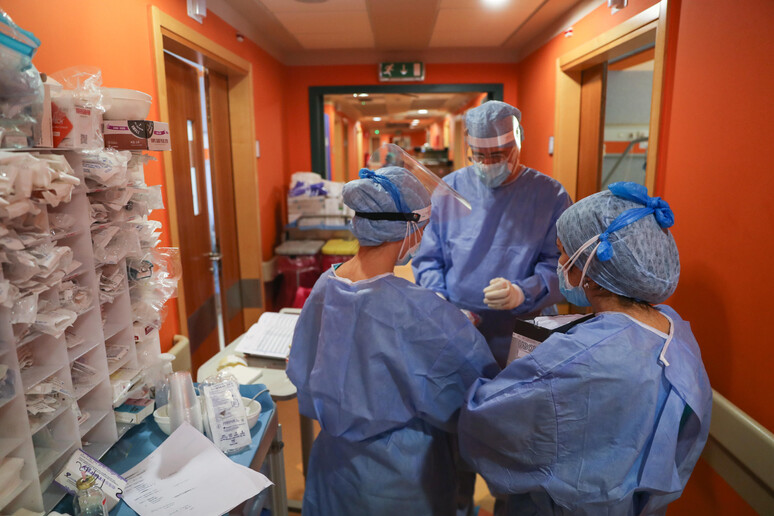Rome's premier children's hospital is
using a groundbreaking new therapy that has shown pre-clinical
promise that may lead to stopping the growth of inoperable
tumors in children, the Bambino Gesù Hospital said Tuesday.
Researchers there have developed "a potential treatment for
diffuse gliomas of the median line", aggressive brain tumors,
which are inoperable and have so far been without any effective
treatment.
The therapy consists of a mixture of Car-T gene therapy and
pharmaceutical therapy which has been shown to curb the growth
of the tumors in a laboratory setting.
"The new treatment strategy has furnished promising pre-clinical
results and may represent the first step towards arriving at
successful treatment a proportion of patients affected by this
terrible form of tumor," said Franco Locatelli, head of the
hospital's blood cancer and gene therapy department and
president of the Higher Health Council (CSS).
The study was initiated on cancer cells from patients affected
with glioma, a type of tumor that starts in the glial cells of
the brain or the spine. Gliomas comprise about 30 percent of all
brain tumors and central nervous system tumours, and 80 percent
of all malignant brain tumours.
Via pharmacological screening , the researchers identified an
experimental drug never before tested for this pathology,
Linsitinib, which proved to be capable of exercising an
anti-tumoral action on the cancer cells.
This molecule was then flanked by the use of Car-T cells
programmed to recognize and kill tumor cells by attacking a
protein expressed on their surface, the GD2 antigene.
"The use of this combined strategy, in laboratory trials, showed
itself to be able to inhibit the growth of the tumour," said the
researchers.
ALL RIGHTS RESERVED © Copyright ANSA











